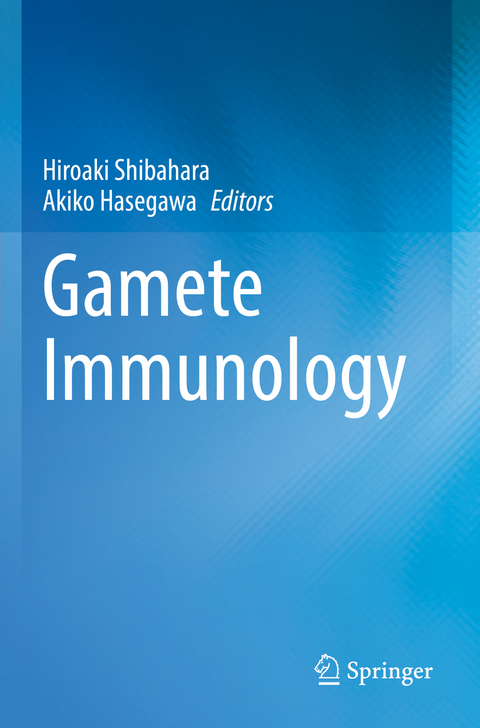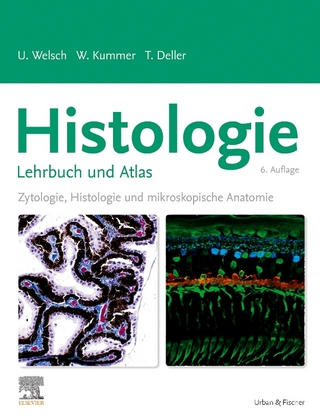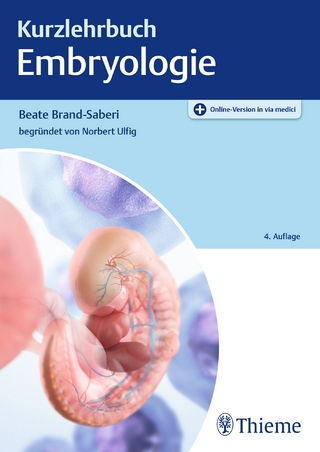
Gamete Immunology
Springer Verlag, Singapore
978-981-16-9627-5 (ISBN)
Gamete Immunology is a valuable resource for researchers, and postdocs who are curious about new research on ASA and AZPA. It offers clinicians and embryologists who are interested in gamete immunology diverse perspectives as well as the basis for new ideas to treat the antibodies and develop contraceptive vaccinogens.
Professor Hiroaki Shibahara, MD, PhD, graduated from Kochi Medical School in 1984. He started training at Hyogo College of Medicine at the Department of Obstetrics and Gynecology and received practical reproductive medicine and sperm immunology from Professors Shinzo Isojima and Koji Koyama. In 1990, he studied at Eastern Virginia Medical School, VA, USA. Under the guidance of Professor Nancy J. Alexander and Dr. Lani J. Burkman, he researched fertilization disorders caused by anti-sperm antibodies. After returning to Japan, he received a Doctor of Medicine degree. In addition to the study of the pathogenesis of female infertility by sperm-immobilizing antibodies, he elucidated the mechanism of anti-sperm antibody production using SCID mice. From 1996 to 1997, he studied at the University of Virginia, VA, USA, and joined the immunological contraceptive vaccine development team. He received guidance from Professor John C. Herr and Dr. Soren Naaby-Hansen. In 1998, he was awarded the American Society for Reproductive Immunology (ASRI) for his conference presentation. In 1999, he was promoted to Jichi Medical School as Associate Professor. In 2007, he was promoted to Professor for the Center for Reproductive Medicine at Jichi Medical School, and in 2013 he returned as Professor and Chairman of the Department of Obstetrics and Gynecology at Hyogo College of Medicine. He held the 28th Annual Meeting of the Japan Society for Immunology of Reproduction (JSIR) in the same year. Professor Shibahara was in charge of the Councilor of the International Society for Immunology of Reproduction (ISIR) and the Vice President of ASRI. He was appointed the President of JSIR from 2017 to 2020. Professor Shibahara has been playing an essentiale. His hobbies are marathon, golf, tennis and Japanese chess, named shogi. He woke up to the full marathon from the age of 49 and set a recordof 2 hours, 53 minutes and 10 seconds at the Tokyo Marathon 2011 when he was 52 years old. Dr. Akiko Hasegawa is a senior researcher in reproductive immunology, graduated from post-graduate school at Osaka University and secured Ph.D. from Hyogo College of Medicine. She is a member of several Japan Societies of Obstetrics and Gynecology, Reproductive Immunology, Ova Research and Fertilization and Implantation. Her researches are mainly related to gamete physiology and fertilization. Dr. Hasegawa has authored many research papers as well as book chapters on reproductive medicine and has been invited to lecture on her research field.
Chapter 1. Historical Background of Immune Infertility Associated with Anti-Sperm Antibody (ASA) in Women.- Chapter 2. Detection of Anti-Sperm Antibody (ASA) in Women.- Chapter 3. Causes of Immune Infertility in Women with Anti-Sperm Antibody (ASA).- Chapter 4. Production of Anti-Sperm Antibody (ASA) in Women.- Chapter 5. Non-Assisted Reproductive Technology (ART) Treatments for Infertile Women with Anti-Sperm Antibody (ASA).- Chapter 6. Assisted Reproductive Technology (ART) as a Treatment for Infertile Women with Anti-Sperm Antibody (ASA).- Chapter 7. Historical Background of Immune Infertility Associated with Anti-Sperm Antibody (ASA) in Men.- Chapter 8. Detection of Anti-Sperm Antibody (ASA) in Men.- Chapter 9. Causes of Immune Infertility in Men with Anti-Sperm Antibody (ASA).- Chapter 10. Production of Anti-Sperm Antibody (ASA) in Men.- Chapter 11. Classical Treatments for Infertile Men with Anti-Sperm Antibody (ASA).- Chapter 12. Assisted Reproductive technology (ART) as A Treatment for Infertile Men with ASA.- Chapter 13. Development of Immunocontraceptives in Famale.- Chapter 14. Development of Immunocontraceptives in Male.- Chapter 15. Wildlife Overpopulation Control.- Chapter 16. Structure of ZP.- Chapter 17. Function of ZP.- Chapter 18. Human ZP.- Chapter 19. ZP in Assisted Reproductive Technology.- Chapter 20. Infertility and Anti-ZP antibody (AZPA).- Chapter 21. ZP-based Immunocontraceptive vaccine.
| Erscheinungsdatum | 01.09.2023 |
|---|---|
| Zusatzinfo | 1 Illustrations, black and white; XV, 279 p. 1 illus. |
| Verlagsort | Singapore |
| Sprache | englisch |
| Maße | 155 x 235 mm |
| Themenwelt | Medizin / Pharmazie ► Gesundheitsfachberufe ► Hebamme / Entbindungspfleger |
| Medizin / Pharmazie ► Medizinische Fachgebiete ► Gynäkologie / Geburtshilfe | |
| Studium ► 1. Studienabschnitt (Vorklinik) ► Histologie / Embryologie | |
| Studium ► 2. Studienabschnitt (Klinik) ► Humangenetik | |
| Schlagworte | Antibody • Antigen • ART • ASA • Assisted Reproductive Technology • AZpA • Immunocontraceptive • Immunocontraceptive Vaccine • infertile • Infertility • Zona Pellucida • ZP |
| ISBN-10 | 981-16-9627-6 / 9811696276 |
| ISBN-13 | 978-981-16-9627-5 / 9789811696275 |
| Zustand | Neuware |
| Informationen gemäß Produktsicherheitsverordnung (GPSR) | |
| Haben Sie eine Frage zum Produkt? |
aus dem Bereich


